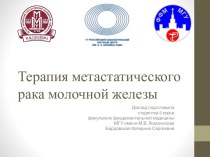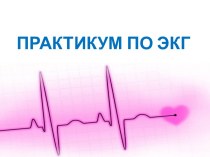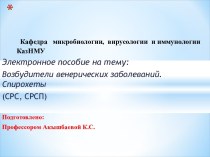- Главная
- Разное
- Бизнес и предпринимательство
- Образование
- Развлечения
- Государство
- Спорт
- Графика
- Культурология
- Еда и кулинария
- Лингвистика
- Религиоведение
- Черчение
- Физкультура
- ИЗО
- Психология
- Социология
- Английский язык
- Астрономия
- Алгебра
- Биология
- География
- Геометрия
- Детские презентации
- Информатика
- История
- Литература
- Маркетинг
- Математика
- Медицина
- Менеджмент
- Музыка
- МХК
- Немецкий язык
- ОБЖ
- Обществознание
- Окружающий мир
- Педагогика
- Русский язык
- Технология
- Физика
- Философия
- Химия
- Шаблоны, картинки для презентаций
- Экология
- Экономика
- Юриспруденция
Что такое findslide.org?
FindSlide.org - это сайт презентаций, докладов, шаблонов в формате PowerPoint.
Обратная связь
Email: Нажмите что бы посмотреть
Презентация на тему Apoplexy ovary
Содержание
- 2. Apoplexy ovary (ovarian rupture) sudden break (breach
- 3. THERE ARE THREE FORMS OF OVARIAN APOPLEXY
- 4. MULTIPLE DEGREES OF SEVERITY:Mild, Moderate Severe (depending on the amount of blood loss).
- 5. SYMPTOMS OF OVARIAN APOPLEXY Pain syndrome, which
- 6. THE MOST INFORMATIVE METHODS OF RESEARCH ARE:Typical
- 7. YOUR ACTIONS WITH APOPLEXY: Immediately take the
- 8. NON-SURGICAL TREATMENTS INCLUDE: attachment to the bottom
- 9. SURGICAL TREATMENT Is the basic, because not
- 10. Скачать презентацию
- 11. Похожие презентации
Apoplexy ovary (ovarian rupture) sudden break (breach of integrity) ovarian tissue, accompanied by bleeding into the abdominal cavity and pain.
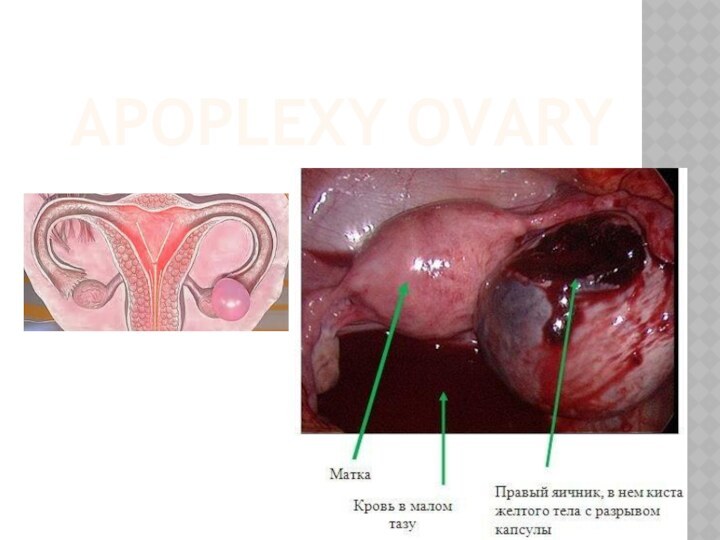
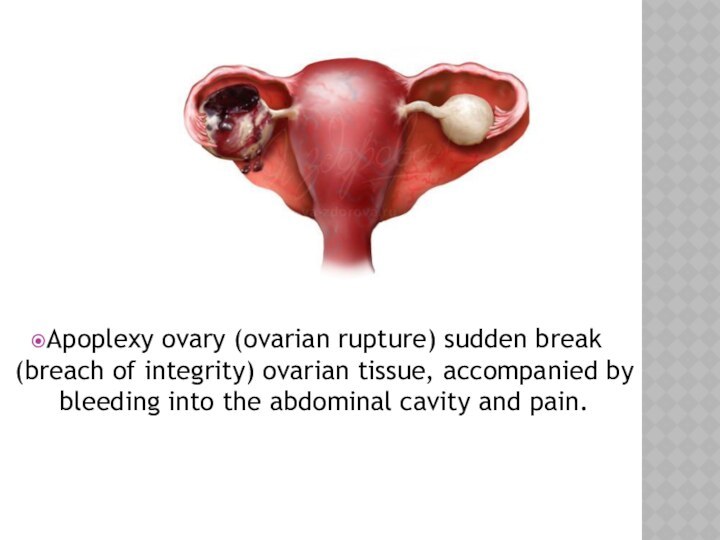
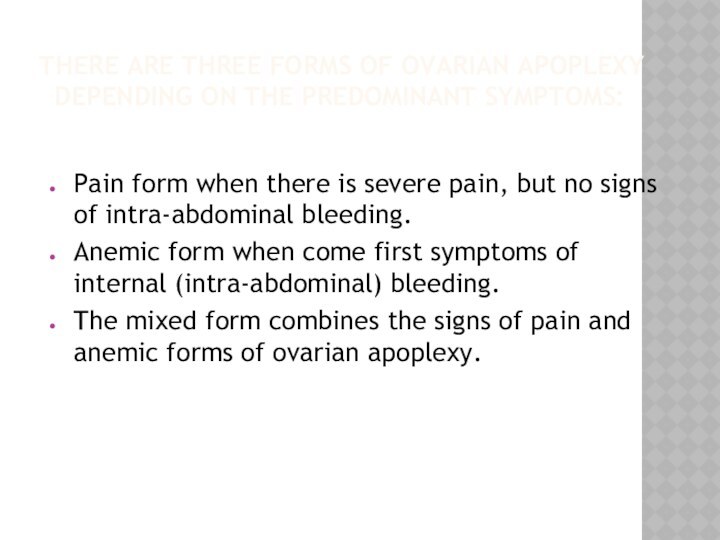
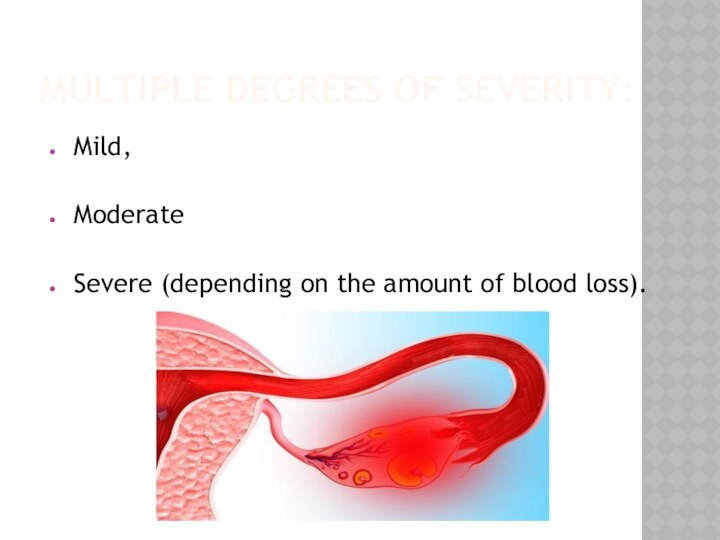
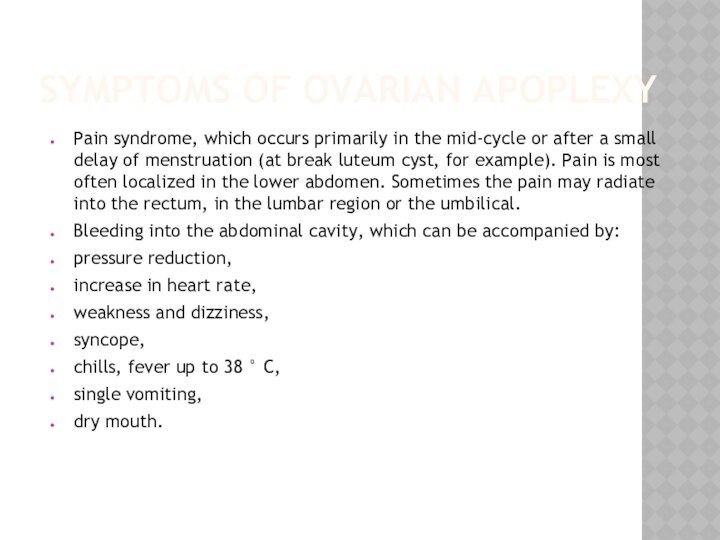
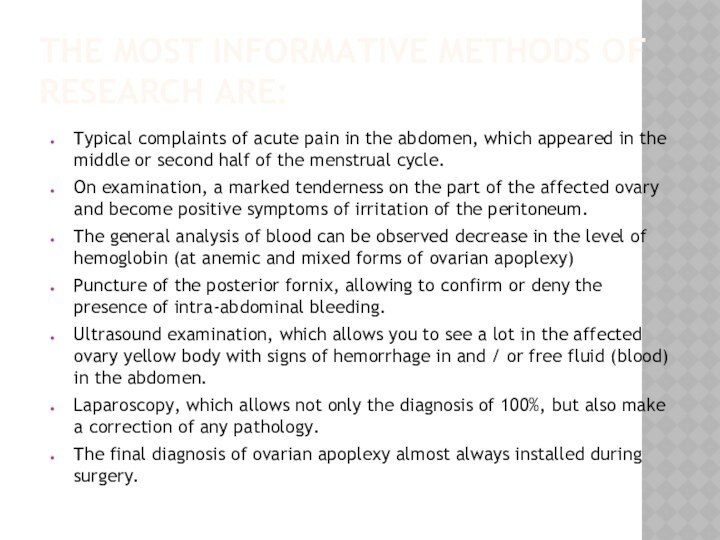
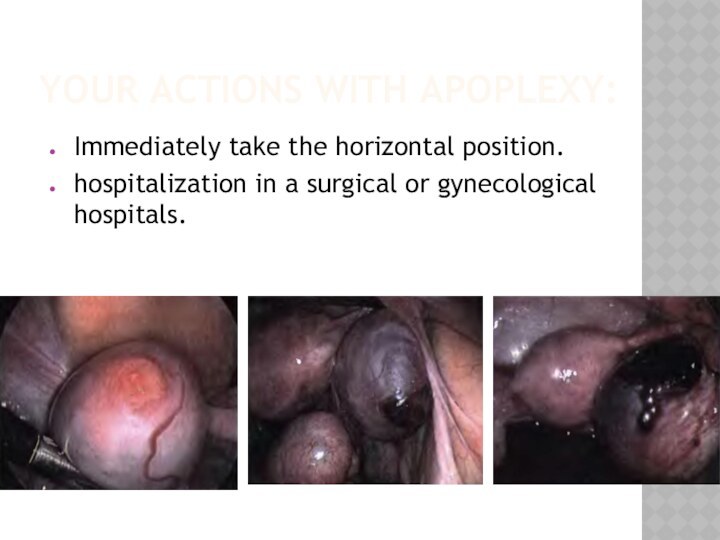
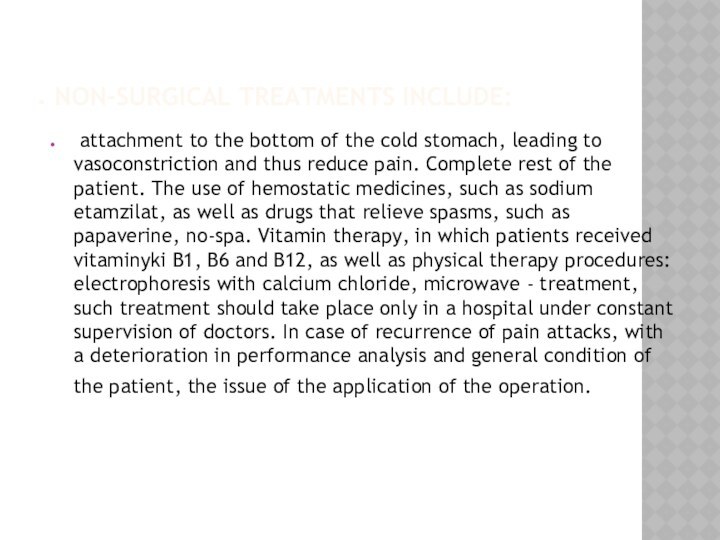
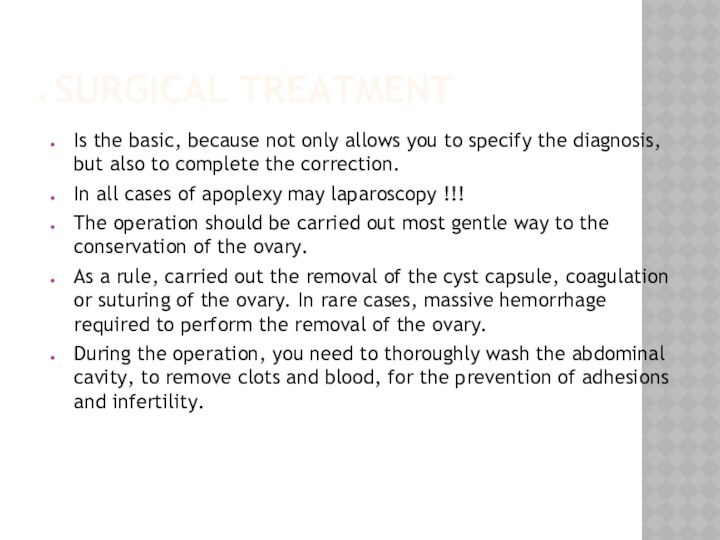

Слайд 3 THERE ARE THREE FORMS OF OVARIAN APOPLEXY DEPENDING
ON THE PREDOMINANT SYMPTOMS:
Pain form when there is
severe pain, but no signs of intra-abdominal bleeding. Anemic form when come first symptoms of internal (intra-abdominal) bleeding.
The mixed form combines the signs of pain and anemic forms of ovarian apoplexy.
Слайд 5
SYMPTOMS OF OVARIAN APOPLEXY
Pain syndrome, which occurs
primarily in the mid-cycle or after a small delay
of menstruation (at break luteum cyst, for example). Pain is most often localized in the lower abdomen. Sometimes the pain may radiate into the rectum, in the lumbar region or the umbilical.Bleeding into the abdominal cavity, which can be accompanied by:
pressure reduction,
increase in heart rate,
weakness and dizziness,
syncope,
chills, fever up to 38 ° C,
single vomiting,
dry mouth.
Слайд 6
THE MOST INFORMATIVE METHODS OF RESEARCH ARE:
Typical complaints
of acute pain in the abdomen, which appeared in
the middle or second half of the menstrual cycle.On examination, a marked tenderness on the part of the affected ovary and become positive symptoms of irritation of the peritoneum.
The general analysis of blood can be observed decrease in the level of hemoglobin (at anemic and mixed forms of ovarian apoplexy)
Puncture of the posterior fornix, allowing to confirm or deny the presence of intra-abdominal bleeding.
Ultrasound examination, which allows you to see a lot in the affected ovary yellow body with signs of hemorrhage in and / or free fluid (blood) in the abdomen.
Laparoscopy, which allows not only the diagnosis of 100%, but also make a correction of any pathology.
The final diagnosis of ovarian apoplexy almost always installed during surgery.
Слайд 7
YOUR ACTIONS WITH APOPLEXY:
Immediately take the horizontal
position.
hospitalization in a surgical or gynecological hospitals.
Слайд 8
NON-SURGICAL TREATMENTS INCLUDE:
attachment to the bottom of
the cold stomach, leading to vasoconstriction and thus reduce
pain. Complete rest of the patient. The use of hemostatic medicines, such as sodium etamzilat, as well as drugs that relieve spasms, such as papaverine, no-spa. Vitamin therapy, in which patients received vitaminyki B1, B6 and B12, as well as physical therapy procedures: electrophoresis with calcium chloride, microwave - treatment, such treatment should take place only in a hospital under constant supervision of doctors. In case of recurrence of pain attacks, with a deterioration in performance analysis and general condition of the patient, the issue of the application of the operation.
Слайд 9
SURGICAL TREATMENT
Is the basic, because not only
allows you to specify the diagnosis, but also to
complete the correction.In all cases of apoplexy may laparoscopy !!!
The operation should be carried out most gentle way to the conservation of the ovary.
As a rule, carried out the removal of the cyst capsule, coagulation or suturing of the ovary. In rare cases, massive hemorrhage required to perform the removal of the ovary.
During the operation, you need to thoroughly wash the abdominal cavity, to remove clots and blood, for the prevention of adhesions and infertility.






